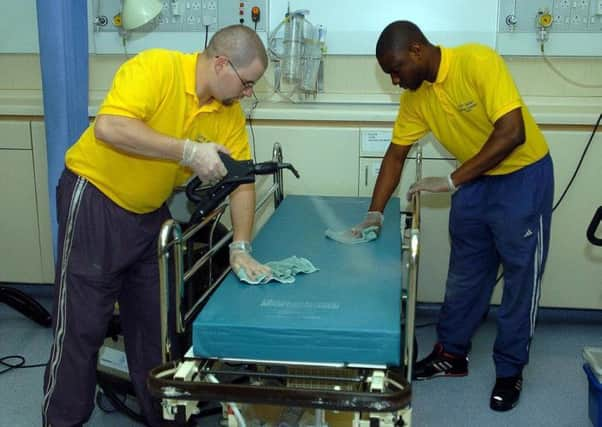Leader: Slicker hospital beds system needed


The SNP’s response is that the policy preference in recent years, shared across the parties, has been towards getting patients back into their own homes rather than long, unnecessary stays in hospital.
CONNECT WITH THE SCOTSMAN
• Subscribe to our daily newsletter (requires registration) and get the latest news, sport and business headlines delivered to your inbox every morning
Advertisement
Hide AdAdvertisement
Hide AdThe administration argues that the number of available acute beds has not changed. The reduction has been in the number of beds available for patients with longer term conditions – and as long as there is a maintained flow of patients being discharged, this should not pose a problem.
Thus, against a fair criticism from the Lib Dems, the administration has countered with a logical enough response. Unfortunately, the process does not appear to be as effective as formal policy statements and flow charts suggest. Evidence for this can be found in the multiple examples of “bed blocking” that have arisen over the course of the year.
The problem is not with the principle of policy but with its practical implementation: in particular the length of time it takes to get people, once ready for discharge, back to their own homes. The process takes too long.
Figures published by the Information Services Division of NHS Scotland earlier this year revealed that the number of cases of “bed blocking” – where patients cannot be discharged from hospital after their treatment has been completed – has risen. In January this year, there were 254 people still in hospital four weeks after they could have been discharged – about 50 per cent more than in January 2013.
Theresa Fyffe, director of the Royal College of Nursing Scotland, described the figures as symptoms of a “sick system” and pleaded for “sufficient resources” to meet patient demand.
But it is more than just a question of “more resources” – the rhetorical fall-back for almost every NHS problem. The system needs attention and reform more than it needs more money.
No-one doubts the challenges facing Scotland’s NHS as it treats more people than ever before, with many patients presenting with more complex, multiple illnesses as a result of our aging population. But efforts must be stepped up to reduce delays in patient discharge.
Of course searching checks have to be made. But slick it is not, and several layers of bureaucracy are involved. Such assessments can and should be performed more quickly. Meanwhile the patient is taking up a bed which is needed to keep the flow going.
Advertisement
Hide AdAdvertisement
Hide AdSpeeding up this process is necessary if the cut in the number of beds is to work. The support agencies need much better co-ordination. That should be perfectly achievable – and a set of improvements implemented with despatch.
Let rail boss bonuses take the strain
Stories of “holiday rail chaos” now seem a permanent feature of our transport system. But the astonishing scenes at the weekend of passengers queuing for hours at a small north London station so overwhelmed that it had to shut the gates to protect hundreds already queuing on the platforms revealed a particularly appalling example of system disorganisation and chaos.
Rail passengers have long accepted the need for essential repair work to be undertaken at off-peak times. But Network Rail had virtually all year in which to prepare this operation. Such repairs – and the changes they involve – should be timetabled and rehearsed and as much advance warning posted as possible. On this occasion it was lucky that the situation at Finsbury Park passed without serious consequence.
Network Rail has admitted its responsibility and issued an apology. There will be an investigation by the Office of the Rail Regulator. A hefty fine is expected. But this is not the first time fines have been imposed and there is little evidence that they provide the necessary sanction to ensure there is no repeat.
Neither the directors nor senior managers are made liable. The “fine” is effected by the transfer of taxpayer funds from one public body to another. The end result is a clip off the budget of Network Rail with little evident change in behaviour.
If ever asked their opinion, many long-suffering passengers would prefer to see some of the billions earmarked for the controversial high speed rail project being spent on bringing the existing rail infrastructure up to scratch – and for future sanctions on service disruption to include a clipping of Network Rail manager bonuses.
SCOTSMAN TABLET AND IPHONE APPS